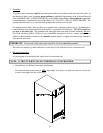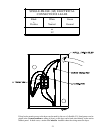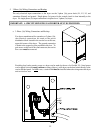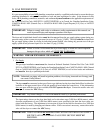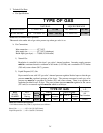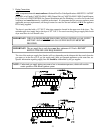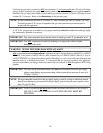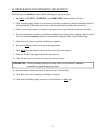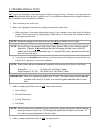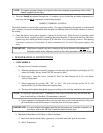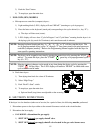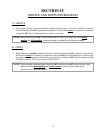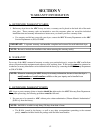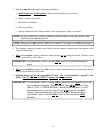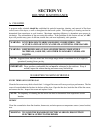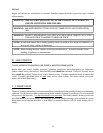
28
I. PREOPERATIONAL TESTS
ALL dryers are thoroughly tested and inspected before leaving the factory. However, a preoperational test
should be performed before the dryer is publicly used. It is possible that adjustments have changed in transit or
due to marginal location (installation) conditions.
1. Turn on electric power to the dryer.
2. Refer to the Operating Instructions for starting your particular model dryer.
a. When a gas dryer is first started (during initial start-up), it has a tendency not to ignite on the first ignition
attempt. This is because the gas supply piping is filled with air, so it may take a few minutes for the air
to be purged from the lines.
NOTE: During the purging period, check to be sure that ALL gas shutoff valves are open.
NOTE: Gas model dryers are equipped with a Direct Spark Ignition (DSI) system, which has internal
diagnostics. If ignition is not established after the first attempt, the heat circuit in the DSI
module will lockout until it is manually reset. To reset the DSI system, open and close the main
door and restart the dryer.
b. A gas pressure test should be taken at the gas valve pressure tap of each dryer to assure that the water
column (W.C.) pressure is correct and consistent.
NOTE: Water column pressure requirements (measured at the pressure tap of the gas valve body):
Natural Gas---------------- 3.5 Inches (8.7 mb) Water Column.
Liquid Propane (L.P.) Gas - 10.5 Inches (26.1 mb) Water Column.
IMPORTANT: There is no regulator provided in an L.P. dryer. The water column pressure must be
regulated at the source (L.P. tank), or an external regulator must be added to each
dryer.
3. Make a complete operational check of ALL safety related circuits:
a. Door Switches
b. Hi-Limit Thermostats
c. Cycling Thermostat
d. Sail Switch
NOTE: The sail switch can be checked for proper operation by opening the lint door while the heating
circuit (gas burner) is active (on). The heating until should shut off within a few seconds. If
not, make necessary adjustments to the sail switch.
4. Make a complete operational check of ALL operating controls.



